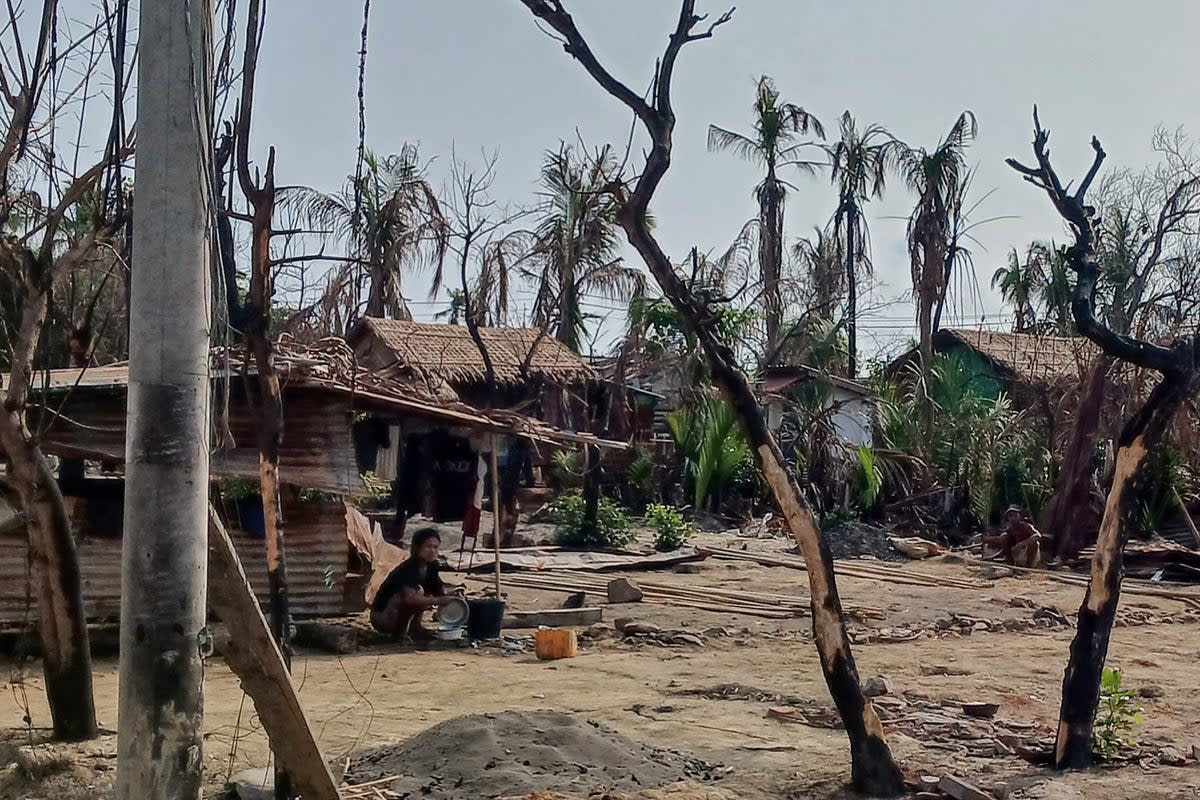Rohingya Muslims in Myanmar’s restive Rakhine state at risk of ‘genocidal violence’

The Rohingya in Myanmar's Rakhine state are at risk of facing "genocidal violence" similar to what the Muslim minority suffered eight years ago, a UN expert has warned.
Thomas Andrews, UN special rapporteur for the crisis in Myanmar, said the situation in Rakhine was "terrifying", according to AFP.
"For Rohingya people – oppressed, scapegoated, exploited, and stuck between warring parties – the situation carries echoes of the lead-up to genocidal violence in 2016 and 2017," Mr Andrews told the United Nations Human Rights Council on Thursday.
An army crackdown against the Rohingya Muslims in 2017 sent 730,000 people fleeing to Bangladesh. The UN described it at the time as genocidal in intent.
In Rakhine, tens of thousands of civilians have been displaced since the Arakan Army, an armed group of the Rakhine ethnic minority seeking autonomy from the central government, renewed fighting the army late last year.
The attacks last November ended a ceasefire which had largely held since a military coup wrested power from the government of Aung San Suu Kyi in February 2021.
Mr Andrews said the military had been conscripting “thousands of Rohingya youth and mobilising them against the Arakan Army”.
“Even though many Rohingya young men have been taken to the frontlines of the conflict against their will, the potential for retaliation by members of the Arakan community, and a downward spiral of violence, is enormous,” he warned. "Tens, if not hundreds of thousands, have been displaced in Rakhine state.”
Although Rohingya are not eligible for conscription because they are denied citizenship, the military has conscripted more than 1,000 men and boys from the community since February using methods including abduction, threats and false promises of citizenship, according to a report by the Human Rights Watch.
In May, the UN human rights office warned of “frightening and disturbing reports” about fresh violence in Rakhine, pointing to attacks on Rohingya civilians by the military and the Arakan Army.
Liz Throssell, a spokesperson for the UN agency, highlighted the burning of the town of Buthidaung, air strikes, shootings at unarmed fleeing villagers, beheadings and disappearances in the northern part of Rakhine in recent weeks.
The Arakan Army announced in May that it had seized Buthidaung, home to a sizable Rohingya Muslim population in northern Rakhine.
“We are receiving frightening and disturbing reports from northern Rakhine state in Myanmar of the impacts of the conflict on civilian lives and property,” Ms Throssell told a briefing in Geneva.
“Some of the most serious allegations concern incidents of killing of Rohingya civilians and the burning of their property.”
She quoted a survivor saying they saw dozens of dead bodies lying around as they fled Buthidaung and others speaking of abuse and extortion at the hands of the Arakan Army.
The United League of Arakan, the political arm of the Arakan Army, said civilians in the battle zone had taken refuge in areas controlled by its forces, adding that it “has been doing its utmost to safeguard and care for these Internally Displaced Persons as valued citizens, irrespective of race or religion".
Rohingya activists, however, have blamed the Arakan Army for most of the destruction.
US State Department spokesperson Matthew Miller previously said Washington was “deeply troubled” by reports of violence in Rakhine and called on the military and armed groups to protect civilians and allow humanitarian access.
"The military’s previous acts of genocide and other crimes against humanity targeting Rohingya, in addition to its history of stoking intercommunal tensions in Rakhine State and elsewhere across the country, underscore the grave dangers to civilians," he said.
"The current increased violence and intercommunal tensions also raise the risks of further atrocities occurring."

 Yahoo News
Yahoo News 
